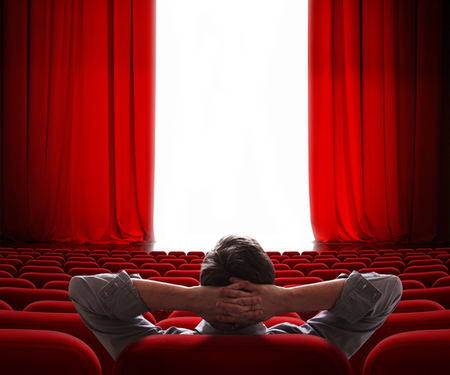Indeed, whiteness has its benefits. My wife, a Black woman, a well-dressed very professional attorney, stopped on her way home from work to purchase a bicycle for our daughter’s Christmas present at a local department store. When she wheeled it out of the store a white security guard stopped her and asked to see her receipt.
Our daughter loved her new bike. When winter subsided for a brief moment in mid-January we went for a ride in the neighborhood. Unfortunately, the bicycle was of such poor quality that each time our daughter applied the brakes, the handle bars lurched forward. The metal was too soft to tighten the clasp enough to solve the problem.
I called the store, informed them of the problem, told them I wanted to return the gift and requested a full refund. The store representative asked some questions beginning with, “Do you have the receipt?”
“No, we no longer have it.”
“When did you purchase the item?”
“I don’t know. We think it was the second week of December.”
“How much did you spend?”
“Not sure, we believe it was around $250.”
We halted the conversation. I heard the store representative take a deep breath. “Bring the bicycle in. I’ll talk to my manager and see what we can do.”
Cash on the Barrel
My wife and I loaded up the bike and brought it back to the store. She went to pick up some groceries while I waited for the manager. He greeted warmly and I shared my story: I wanted our money back; I had no receipt; can’t remember the exact date of purchase and think we paid $250.
By the time my wife returned with the groceries, the manager was counting out the cash I requested while the salesperson wheeled the returned bike away. I heard her say “no, he didn’t.”
On our way back home she asked if I had mentioned that they asked to see her receipt when she originally bought the bike.
“No, I didn’t.”
“Whiteness has its benefits, doesn’t it?”
“Clearly.”
“You should start a business, call it ‘Rent a White Man.’ Want to return something but have no receipt, can’t remember when you bought it or how much you spent, rent a white man. He’ll get your full money back.”
Had the moment not been so painful, I might have laughed.
The List Goes On
My life is a litany of similar defining moments. There are many more. A cop pulled me over for drunk driving. I was clearly inebriated. He asked where I was headed. I told him “home.” He followed me until I safely parked in front of my house. I thanked him and he reminded me to think twice next time before I decide to drive drunk.
While driving with my wife a cop pulled us over on a country road, asked to search our car, and detained us while he spent a long time on his phone before saying we could continue on our trip. When we asked what the problem was, he said “we get a lot of drug traffickers from the city passing through here and you two, well, let’s face it, you fit the profile.”
As a single white man, I could walk into most any restaurant, feel safe, receive timely wait service and enjoy a peaceful meal. On a number of occasions my wife, daughter, and I watched as white families seated long after us got served long before us. Twice we left places when it became clear that we would not be served at all.
So, what have I learned about being white?
What follows is just a few of things I’ve discovered along my journey:
When I see red flashing lights of a police car, I’m concerned but not to the point where I’m afraid I might end up dead.
I am confident that I will be treated fairly in most situations.
Being white often means not being aware of your whiteness.
Many white people either don’t want to talk about race or don’t know how to talk about race.
Most white people are afraid of people of color and afraid of having their racism called out.
Many white people feel guilty that whiteness has its privileges, don’t want to lose it and will support someone like Donald Trump in order to maintain it.
Most white people don’t acknowledge their whiteness nor do they acknowledge the benefits it brings. When they claim they “don’t see color”, they are really saying they don’t see their white privilege.
A Culture of Inequality
Many white people believe that “anyone can make it if they really want to.” They hold fast to the notion that the individual reigns supreme. The flip side of that claim that doesn’t get said is that if you don’t “make it”, it’s your own damn fault because if anyone can succeed as a result of individual effort, there is no systemic racism, sexism, etc. to make it easier to succeed, to be seen as an individual if you are white.
Most white people who acknowledge racism see it as individual act committed by someone else somewhere else.
We are all shaped by the racist society in which we live. Racism is systemic. If we go about “business as usual” we run the risk of reinforcing age old discriminatory practices embedded in the fabric of our society.
The flip side of racism is white supremacy. We are all shaped by the white supremacist society in which we live.
In order to diminish racism and white supremacy, white people have to unlearn their racism.
Racism and white supremacy, white supremacist structures, institutions, policies and practices need to be dismantled.
The actions of those in power need to change or we have to change who is in power.
A Lifetime of Learning
I have a lot more to learn and thankfully do so on a regular basis. I’m not alone. White people in general have a lot to learn. Our learning begins with increased self-awareness—yes whiteness is a racial category. It progresses by being open to the experience and listening to the voices of people of color. It crystalizes when we become allies on a daily basis, when our personal commitment to justice becomes a collective one, when we carry on the work of those who have preceded us to an inclusive future, one where whiteness does not have its exclusive benefits.


